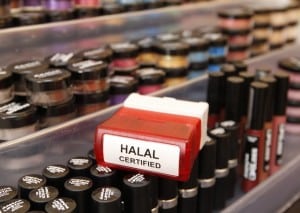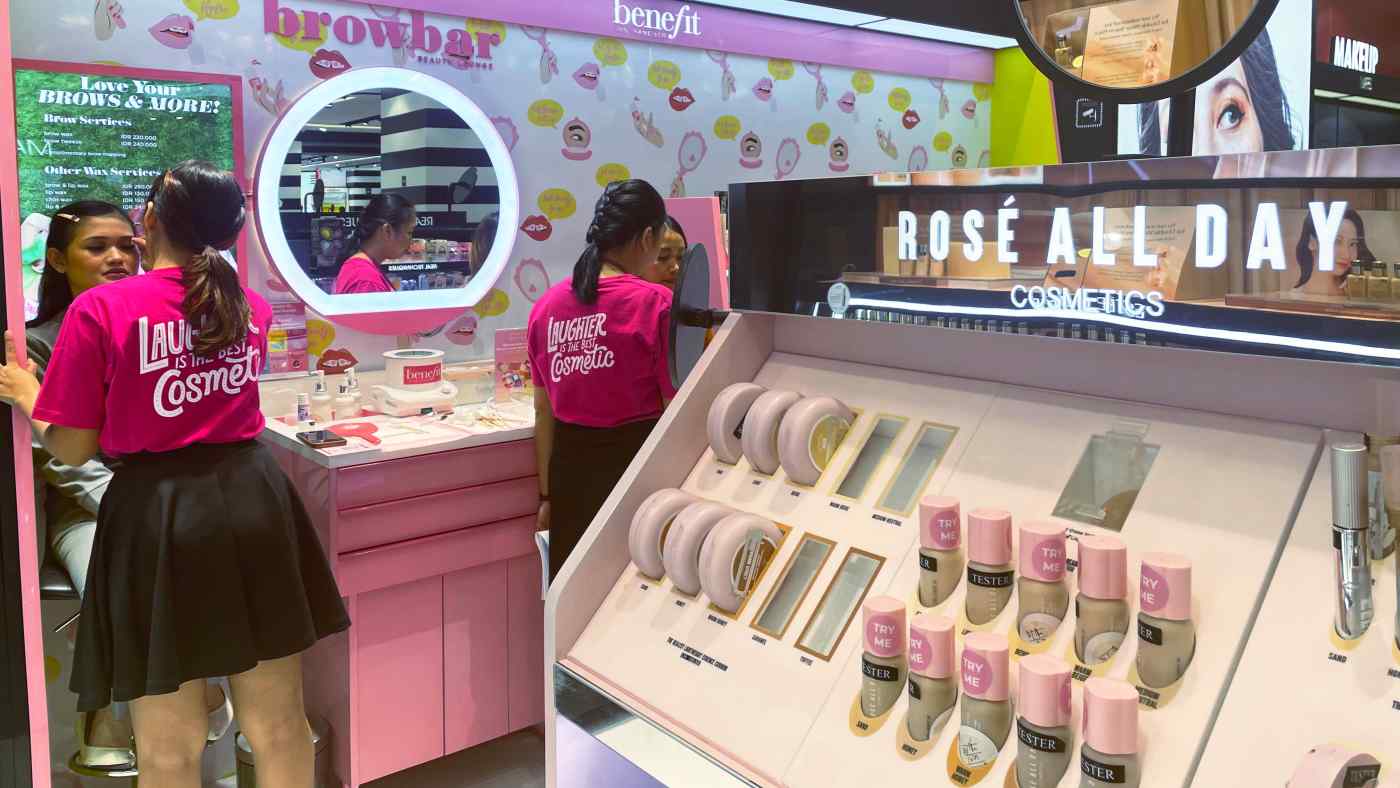By Amanda Foxon-Hill
Cosmetic Chemist
![]()
![]()
![]()
|
|
|
Halal |
Standards Malaysia issued a
bulletin in August 2009 outlining the rationale behind a
soon-to-be-proposed standard governing halal cosmetics. The standard has
been drafted in response to a growing global demand for products that
meet halal standards.
So, what does a halal cosmetic mean
and can all cosmetics be halal?
Different People, Different Views
On interviewing different people,
different opinions about and definitions for halal cosmetics were
encountered.
Some defined them as anything
“free from haram products,” such as pigs and certain biochemicals.
Others defined them as “some eyeliners and mascara,” while a third group
referred to them as “cosmetics that enhance a woman’s natural beauty
but not in a forbidden manner.”
“My friends and I do not think
about what is halal when it comes to cosmetics. Halal is important for
food, but for other products, I am not sure,” says Aisha, 33 years old.
It is clear from just a small
sample of interviews that the issue of halal cosmetics is not something
to be taken lightly. To use the term as a marketing point of
difference or a lure to attract more customers is deeply
disrespectful. Furthermore, it is clear that the types of products
worthy of halal stamp should be carefully considered.
When it comes to products that
help to maintain cleanliness (e.g., soap, shampoo, deodorant, and body
wash) and protect hygiene (e.g., moisturizing creams, certain hair
conditioners, toothpastes, mouthwashes, lip balm, and sunscreen), the
development of an all-encompassing halal standard makes much sense and
would be highly welcomed.
The Halal Standards
| “If a company had a production line of cosmetics under the label banner ‘halal’, but that the people running this company were sinister and corrupt in their administration and their ethical and moral stance, the majority of Muslims would not buy their products.” |
The proposed halal standard will require that
cosmetics manufacturers comply with the relevant parts of the food
standard MS 1500 — all ingredients must comply with halal and Shari`ah
requirements, and no non-halal ingredients such as alcohol or materials
derived from pigs should be included. Moreover, all ingredients must be
stored, manufactured, packaged, and delivered in accordance with strict
halal standards.
With the rise of biotechnology
and high-tech anti-aging products, making the right non-food choices is
becoming harder than ever. Muslims all over the world will welcome being
able to buy their body care essentials without first having to contact
the manufacturers, check each ingredient, and take products along to the
mosque for consultation.
However, it is when we come to
products such as brightly colored nail varnish, makeup, hair styling
products, glitters, and hair dyes that views start to diversify. The
types of cosmetic products that could achieve the halal status under
this new standard are open to interpretation.
In addition to which products
should be certified, one must also consider how easily these cosmetics
can be removed in preparation for Prayer. Nail polish, fake tans,
permanent hair dyes, and long-lasting lip colors are definitely areas
for the cosmetics industry and the Muslim community to think about.
Business or Spirituality?
|
|
| All ingredients must comply with halal and Shari`ah requirements, and no non-halal ingredients such as alcohol or materials derived from pigs should be included. |
The fact that any product could pass the halal
certification standard is causing some people to question the motives
behind this growing market segment.
Niche markets can cite big
business opportunities, and for some people, only cash is sacred. There
is no doubt that the introduction of a standard for halal cosmetics will
be seen by some as an opportunity too good to miss.
However, for many Muslims, the
very notion of the term halal being used as a nifty piece of
niche marketing is abhorrent. Halal is more than the sum of the product
manufactured; it is a divine law, faith, and guideline for life.
Indeed, it not only matters what
goes into the product, but also the ethics of the manufacturing company,
the way that the product is marketed and distributed, and the
motivation of the company involved for pursuing this market.
“If a company had a production
line of cosmetics under the label banner halal, but the people running
this company were sinister and corrupt in their administration and their
ethical and moral stance, the majority of Muslims would not buy their
products,” Aly (not his real name), 39 years old, told IslamOnline.net
(IOL).
“Before buying something halal, I
would want to know more about the company or check their website. Most
importantly, what are the companies’ ethics and origins, and how do they
source their ingredients?” added Aina, 25 years old.
Standards Malaysia is fast
becoming the global authority for halal certification. As such, it is in
a perfect position to offer more reassurance and authenticity to this
emerging market.
However, our external appearance is only
one aspect of beauty, and thus, it seems wise to protect and respect it
without letting it rob us of our full potential. Real beauty comes from
the things that we do, the way of life that we lead, the love that we
share, and people’s hearts that we touch. And while halal cosmetics may
have a part to play, they should not be used flippantly.
Sources:
“Halal
Cosmetics.” Standards Malaysia. 12 Sep. 2008. Accessed 18
Jan. 2010.
“New
Make-up Line Has No Alcohol or Pig-Residue: Muslim Women Get “Halal”
Cosmetics.” Al Arabiya News Channel. 12 Sep. 2009. Accessed
18 Jan. 2010.
Patton, Dominique. “Could
Halal Cosmetics Be Developing Into a New Global C&T Niche Market?”
Cosmetics Business. 28 May 2009. Accessed 18 Jan. 2010.
* With
thanks to Alex Alfan for coordinating the interviews and to the
interviewees for the comments that they provided for this article.



